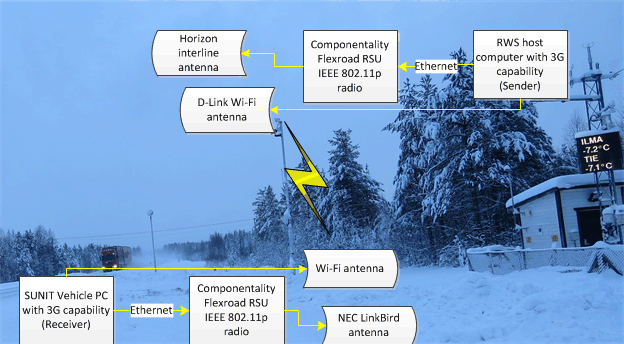Other issues being investigated include the use of data on local road weather conditions to improve the situational awareness of autonomous vehicles and the enhancement of autonomous operation in harsh weather.
The services currently being developed require no action during driving in order to send data or warnings. Instead, the prevailing local weather and road conditions are automatically identified based on data collected from vehicles. Warnings and other useful information are sent in real-time to road users, road operators and autonomous vehicle control systems. The new network and cloud computing technologies being researched under the project aim to reduce delays in data exchange and be more scalable than current services.
According to Tiia Ojanperä, a project manager from VTT, the wide introduction of real-time services, based on sensor and video data collected from vehicles, is being made possible by next-generation 5G mobile network technology and new solutions supporting optimal data collection and exchange.
As an example, he says 5G will form the cornerstone of interaction between autonomous cars. Contemporary driver support systems are mainly vision-based, relying on signals generated by the vehicle’s sensors. 5G and short-range radios will also bring the power of speech and hearing to vehicles, taking their capabilities to a new level, he claims.
5G-Safe project developing road weather services based on vehicle data
VTT Technical Research Centre of Finland is coordinating the 5G-Safe project, which is part of Tekes’ Challenge Finland competition. It is focused on the identification of local weather and road conditions on the basis of data collected from vehicles, and the sending of warnings to road users. In addition, real-time video and radar data will be exchanged between passing vehicles. Other issues being investigated include the use of data on local road weather conditions to improve the situational awareness of











